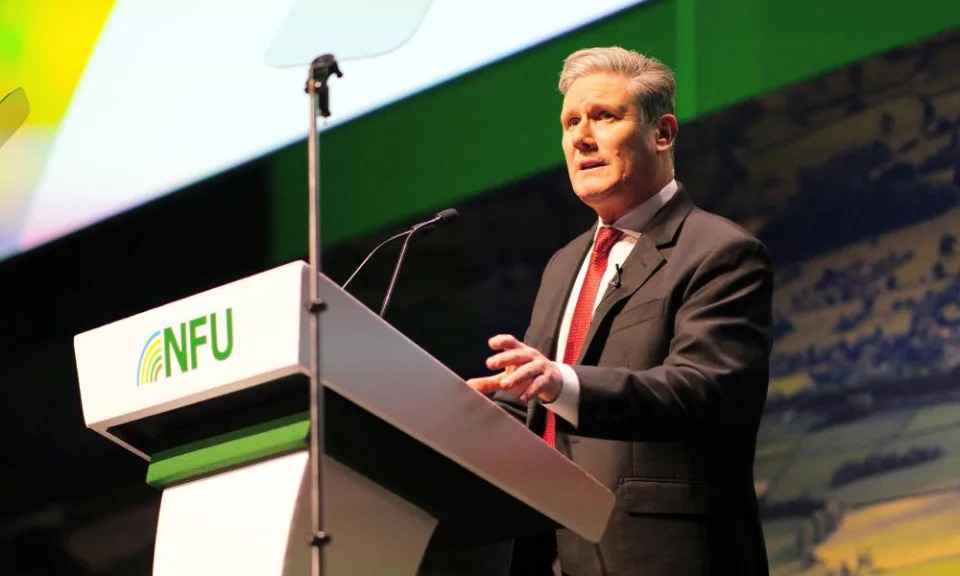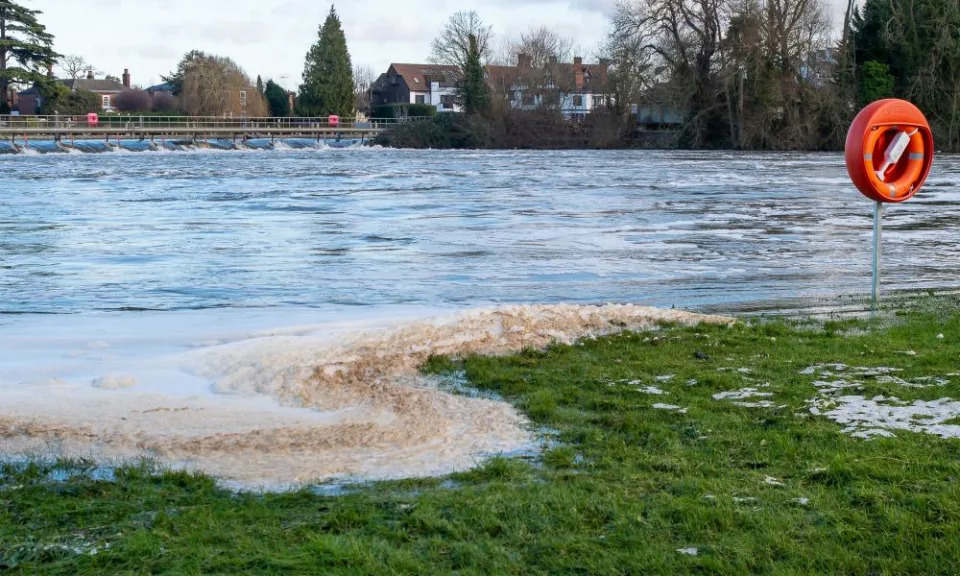UK
Labour gave us national parks – why is Starmer so silent on nature’s survival now?BECAUSE HIS NAME BEGINS WITH SIR
Craig Bennett
Tue, 21 February 2023

Photograph: Ben Birchall/PA
When I arrived at the Labour party conference last year, it was hard to miss its new slogan – A Fairer, Greener Future – which was emblazoned across Liverpool exhibition centre. Just a few small words, but such prominence for the climate at a national political party conference put a smile on my face.
But, as we saw today in Keir Starmer’s speech to the National Farmers’ Union, the party is less vocal about its plans to solve the nature crisis. There is no green or fair future without nature, and there is no solution to the climate crisis unless we put nature into recovery at pace and scale.
There have been significant achievements by Labour governments on nature – wonderfully summed up but simultaneously exploded by John Prescott when he said in 1998, “The green belt is a Labour achievement – and we mean to build on it.” However, the roadmap to a fairer, greener future that Labour published at its last conference does not mention nature, nor what is needed to reverse its dramatic and alarming declines.
Addressing the climate crisis has not come naturally to the Conservatives – they are more at home with “countryside” issues. Sometimes these align with a nature-positive agenda, sometimes not. Recently Conservatives have come close to losing this advantage and have created an opportunity for Starmer to seize.
The river pollution scandal, partly a product of austerity cuts to enforcement agencies, now plagues the government and swamps Conservative MPs’ mailboxes. Even worse, the Liz Truss government’s efforts to dismantle environmental protections, which were branded an “attack on nature”, continue under Rishi Sunak with the appalling retained EU law bill.
Starmer must take the opportunity to set out a clear, authentic narrative on how a Labour government would tackle the climate crisis and the nature crisis, and how it will deliver the ambitious international targets agreed at last year’s United Nations Cop15 nature summit, not least cutting nutrient pollution (faeces) from our waterways by half by 2030.

‘Labour must recognise that there’s no such thing as food security if our pollinators are in decline, our soils are disappearing and our rivers are polluted.’ Sewage foam by Marlow weir, Buckinghamshire. Photograph: Maureen McLean/REX/Shutterstock
Today’s speech focused on the pressures farmers face, and committed to upholding high standards and boosting food security through public procurement. This is all great. But Labour must recognise that there’s no such thing as food security if our pollinators are in decline, our soils are disappearing and our rivers are polluted. The UK Food Security Report in 2021 identified the loss of nature and the climate crisis as the two greatest threats to food security in Britain. The extreme heat and droughts last year were a taste of our new reality.
Investing in nature is critical for our food supply – to rebuild our tired soils and to allow farmers to break free of imported fertilisers. Yet public investment in farming is tiny – we are spending more than 10 times as much on roads as we are on the annual farming budget.
What is needed is a green rural regeneration budget that has nature at its heart, reflecting the scale of the challenge needed to restore our natural world and safeguard the nation’s food and water security. The government’s agricultural reform has faltered partly because the financial offer to farmers has not been generous or consistent enough to help them transition to more nature- and climate-friendly practices.
Investment in nature pays in other ways. The landmark Marmot review in 2010 exposed the cost of environmental decay to our health and life expectancy. It warned that those living in the most deprived areas have less green space, worse air pollution and worse river water quality – and this is deepening existing health inequalities.
Related: Be warned: the next deadly pandemic is not inevitable, but all the elements are in place | George Monbiot
Studies show that the further your home is from green space, the higher the disease prevalence. One in three people do not live within 15 minutes’ walk of natural green space. Addressing this inequality can cut GP appointments, save the NHS money and create fairer, greener places to live. Polling shows that good quality natural places are the most important thing to foster pride in people’s communities – more than pubs or even the local football team.
And it’s easy to see why. More than 8 million Britons belong to nature charities such as the Wildlife Trusts, RSPB and National Trust, dwarfing the membership of political parties. Millions more will sit in awe at the new David Attenborough TV series, Wild Isles, next month. Britain is a nation of nature lovers.
Previous Labour governments understood this important part of our national story. After the suffering of the second world war, Clement Attlee’s government opened up rural Britain to the public and created the first national parks through the National Parks and Access to the Countryside Act 1949. This was extended by Tony Blair via the Countryside and Rights of Way Act 2000.
Labour has strong foundations to make a compelling pitch to the electorate on nature recovery ahead of the next general election. In the words of John Prescott, they should build on it.
Craig Bennett is the chief executive of the Wildlife Trusts
No comments:
Post a Comment